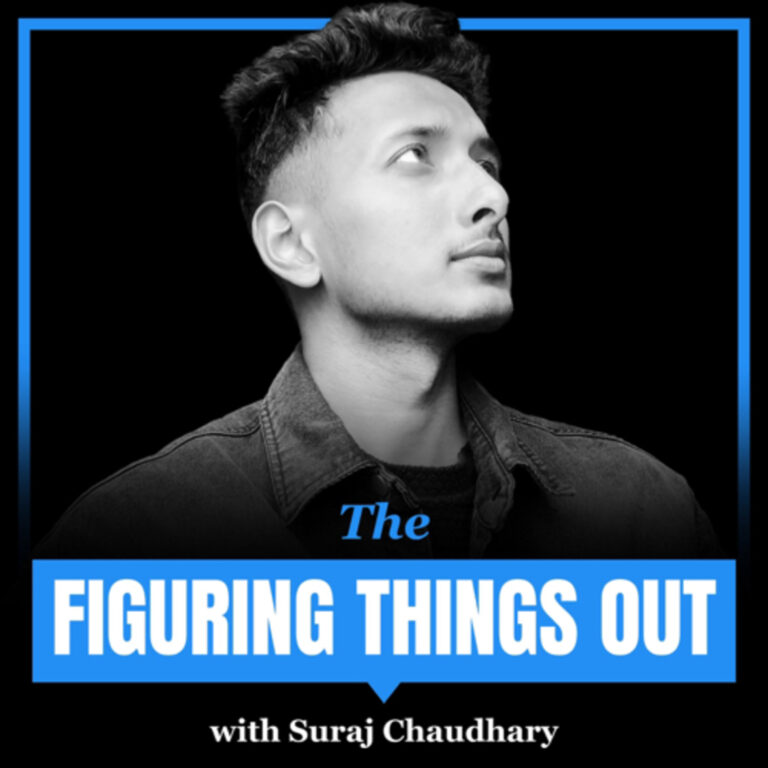
One lesson, thought, or resource to living a fuller life every week. Some bonus episodes here and there.
Suraj Chaudhary is a writer, developer, founder, and a constant learner. He shares lessons and resource to living a fuller life every week.
In this episode, I share with you a mistake I almost made which could've been the biggest mistake of my life.
Suraj Chaudhary is a writer, developer, founder, and a constant learner. He shares lessons and resource to living a fuller life every week.
Join my weekly newsletter: surajc.com

Dear reader,
When rich people said “Money doesn’t bring happiness”, I used to discard it in seconds. Of course, they can say that because they have all the money in the world.
Recently, however, I’ve been thinking about this topic a lot.
The past few months have been a “man’s search for meaning in life” situation for me.
As I pondered over “Should I build a financially free life?” or “Should I build a simple mediocre life?”, I realized that I’ve worked really hard and with immense discipline to up-skill myself.
I thought I was making a really smart move by dividing my life in two halves: in the first half, I’d work really hard, and become financially free by doing the things even though I don’t want to, and in the second half, I’d travel, write books, photograph, and basically do what I want to do.
But then I started thinking about the question I started with “Why do financially successful people say that money doesn’t bring happiness?” Was I on the same path?
I might as well be. It was difficult to accept but for most of my young adult life now, I’ve put working on my goals over being with family or going out with friends, or just relaxing.
If I’m being honest, if I were to continue going on the path that I have been going on, with time, I don’t know if the people I consider closest would still be with me.
I think this is what financially successful people usually go through as well–they are so focused on building a life of abundance that, in the meantime, they let their relationships weaken.
Ultimately it is the people we meet, the memories we make, the experiences we share that matters, no?
Yes, we should aspire to create an impact on people’s lives and do something remarkable, but once we are gone, we are gone. It won’t really matter.
I know this is selfish, but why should I let my most valuable relationships weaken and my loved ones feel neglected for creating an impact on other people’s lives?
And does it really have to be one of these two extreme options–live in the present or work for the future?
I think not.
I think a balance is possible, a balance that achieves both of these goals.
Tim Ferriss, in his book “The 4-Hour Work Week”, talked about spreading mini-retirements throughout your life instead of retiring at 60 because then you’d already be too old to properly enjoy.
A similar approach is possible for building a remarkable life where you are financially free and yet have meaningful relationships.
That approach I call “living intentionally.”
When you live intentionally, you do work on your ultimate career goals but you don’t lose sight of your values, your priorities, and your relationships.
When you live intentionally, you work hard when you must, but you also put in intentional time and effort toward your relationships. You take intentional breaks.
You don’t rush through your life. You slow down to think about things, to admire life, to admire people, and your relationships.
To such a life, you can also refer to it as a deep life.
If you’d like a few practical tips to build such a life yourself, watch this video on “How to build a deep life?”
For now, here’s what I’d like you to learn from this article:
Takeaway: Don’t let your focus on building a remarkable life later let you lose sight of your relationships right now. Nothing is more important than your relationships and your family. Take care of them, embrace them. Live intentionally.
This week’s question for you: In an ideal world, how much time would you spend with your loved ones–your family & friends?
Write me a quick comment response with your answer.
I’ll write again next week.
See you then!
Warmly,
Suraj

